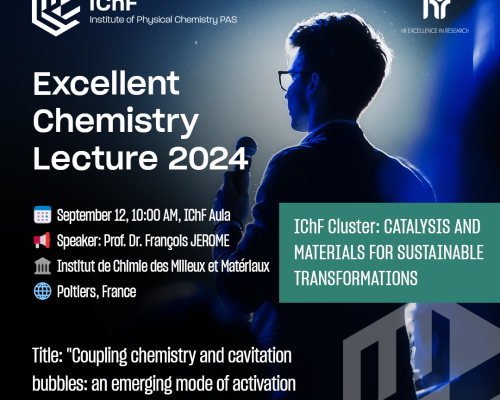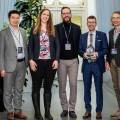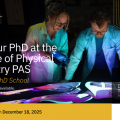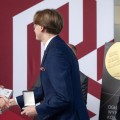Invitation to Cluster’s 3 Excellence Chemistry Lecture titled: Coupling chemistry and cavitation bubbles: an emerging mode of activation boosted by the electrification of our society
Reading time: about 2 minuts
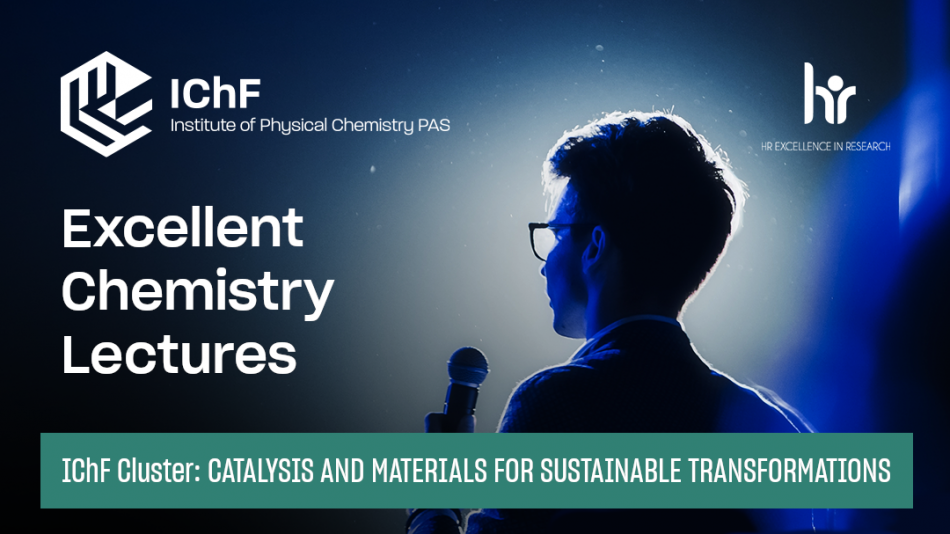
You are cordially invited to a talk organized by Cluster 3, titled: “Catalysis and materials for sustainable transformations”.
Title of the lecture: „Coupling chemistry and cavitation bubbles: an emerging mode of activation boosted by the electrification of our society”
Abstract
The massive defossilization of our society is now offering new prospects to activate chemicals in a potentially more sustainable way, for instance with the help of electric and magnetic fields, photons, electrons, mechanical forces, etc. In this context, we are exploring the use of cavitation bubbles, formed by the application of an ultrasonic wave in a liquid, to activate and convert chemicals without assistance of any catalyst. If excited species generated at the bubble collapse time can induce nearly barrier-less reactions, the control of the selectivity of induced reactions remains a scientific challenging task, which we (partly) address in this conference. In particular, we will highlight that NH3 can be advantageously activated without any catalyst, “just” by the application of ultrasonic wave at 550 kHz. This ultrasonic activation was exploited in the direct conversion of NH3 to N2H4 and its subsequent oxidation to a diimide for promoting the hydrogenation of alkenes to alkanes. The confinement of cavitation bubbles on the surface of solid catalysts (here CuO) will be also discussed to demonstrate that the energy stored in cavitation bubbles can be selectively transferred to a catalytic surface. It thus opens a mean to locally heat the surface of a catalyst rather than the complete bulk solution which is a much more energy consuming path.
Short CV
François JEROME got his PhD in 2000 from the University of Burgundy (France). Then he moved to UC-Davis (USA) for a one-year postdoctoral position, and then he returned back to France (Rennes) for a second postdoctoral position. In 2002, he was recruited as a permanent CNRS researcher at the laboratory of catalysis in organic chemistry at the University of Poitiers. In 2011, he was promoted CNRS research director at the Institute of Chemistry of Poitiers. His research largely concerns the conversion of renewable feedstocks to fine chemicals. In this field, he developed an expertise on catalysis and more particularly on the coupling of catalysis with auxiliary promotional tools. His research was awarded by the French Chemical society (prize from the catalysis division), the CNRS (national medal on innovation) and EFCATS (Francois Gault lectureship award). He is now leading a public/private network working on the catalytic conversion of renewable feedstocks, he is in the editorial board of the green chemistry journal and he is chairman of the International Symposium on Green Chemistry organized each two years at La Rochelle (France, > 700 attendees).

- Date: 9.08.2024
